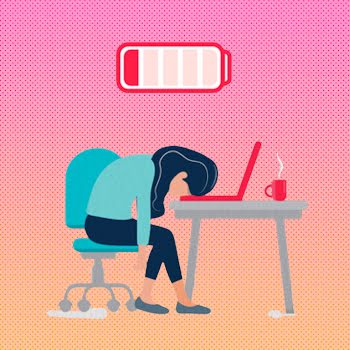Ask the Doctor: ‘I’m 61 and have started getting a siren-like sound in my ear — could it be tinnitus?’
By Sarah Gill
14th May 2024
14th May 2024
All your burning health questions answered by the professionals.
“I am a 61-year-old woman, and have recently been getting this odd sound in my ear. It’s like an annoying ringing, almost siren-like, but more even pitched and hard to describe. I have never had any problems with my ears. What could be causing this? I am terrified it could be something very serious and have been putting off going to the doctor… Help!”

Answer from Dr. Emma Cashman, Consultant Otolaryngologist, Beacon Hospital
Advertisement
The short answer is there is no need to be terrified! What you are experiencing sounds like tinnitus, a common condition that affects about 15% of the population.
Tinnitus is the perception of sound that does not have an eternal source. It can sound like ringing, buzzing, whooshing, humming, hissing, throbbing, whistling or music. You may hear it in one or both ears, and in your head. It may come and go, or it may be persistent in nature. The volume and pitch of the sound may vary from person to person. Some people find tinnitus mildly annoying, whole others find it very distressing. Tinnitus can affect your concentration, sleep, mood or mental health.
There are several possible causes of tinnitus. The most common one is age related hearing loss, which happens when the tiny hair cells in your inner ear that convert sound waves into electrical signals become damaged or die overtime. Other causes include exposure to loud noise, ear infections, ear wax build up, medications and stress or anxiety. Rarely, tinnitus can be a sign of a more serious condition therefore, it is important to see your doctor if it bothers you, especially if it occurs suddenly or with other symptoms such as hearing loss or dizziness.
There are no treatments that can cure tinnitus, but there are ones to help you cope with it better.
Depending on the cause and severity of your tinnitus, we may recommend one or more of the following options:
Hearing aids: If you have hearing loss along with tinnitus, wearing hearing aids can amplify external sounds and make your tinnitus less noticeable.
Advertisement
Sound therapy: This involves using sound devices such as white noise machines, fans or music players to help mask or distract you from your tinnitus. You can also use headphones or earbuds to listen to soothing sounds such as nature sounds or ambient music.
Cognitive behavioural therapy (CBT): This is a type of counselling that helps changes your negative thoughts and emotions about your tinnitus and learn coping skills to manage it better.
Tinnitus retraining therapy (TRT): This is a specialised form of sound therapy that that combines counselling and sound generators that produce low level noise to help you habituate to your tinnitus over time.
Medications: There are no specific drugs for tinnitus, but some medications such as antidepressants or anti-anxiety drugs may help reduce your stress and improve your mood if you have anxiety or depression related to your tinnitus.
Lifestyle changes: You can also try some simple measures to reduce the impact on tinnitus on your daily life. These include avoiding loud noises or using ear protection when exposed to them, practising relaxation techniques such as meditation or yoga, and joining a support group or online forum for people with tinnitus.
Tinnitus can be a challenging condition to live with, but it does not have to ruin your quality of life.
Advertisement
With proper diagnosis and treatment, you can learn to adjust and adapt to a normal life alongside the condition.
Have a question for the professionals you’d like answered? Get in touch with sarah.gill@image.ie with the subject headline ‘Ask The Doctor’.
This article was originally published in May 2023.




















